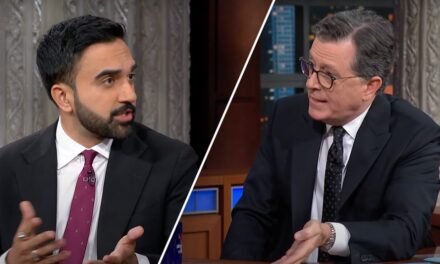As America comes together to celebrate its Independence Day, the significance of July 4, 2023, is being viewed through markedly different lenses across the political spectrum. For many on the Left, this day symbolizes more than just fireworks and barbecues; it has become an opportunity to voice discontent and advocate for social change. Meanwhile, those on the Right are embracing a spirit of patriotism and national pride, viewing the holiday as a chance to reaffirm their commitment to American values. This dichotomy highlights deep ideological divides that continue to shape the nation.
Protests organized by various Left-leaning groups are planned in several cities across the United States, aiming to bring attention to numerous pressing issues including racial inequality, climate change, and women’s rights. These demonstrations are not merely coincidental; they are thoughtfully timed to coincide with a holiday that embodies the very principles of freedom and equality. Activists assert that while the country celebrates its independence, it is critical to recognize that these freedoms are not universally experienced by all citizens.
In cities like New York, Los Angeles, and Chicago, marchers will bear signs with slogans like “Freedom for All” and “No Independence Without Justice.” These slogans serve as a reminder that historical injustices continue to affect the marginalized communities within the country. For instance, recent discussions surrounding police brutality and systemic racial injustice have reignited debates about what it truly means to be free in America.
Leaders in these movements emphasize that July Fourth should not simply be a day of celebration but also a moment of reflection. They argue that the foundational ideals on which the nation was built remain unfulfilled for many Americans, particularly for those from racially and economically disadvantaged backgrounds. The protests aim to confront these issues head-on, challenging everyone—regardless of their political affiliation—to reflect on the meaning of freedom and democracy today.
On the other side of the political spectrum, conservatives view the Fourth of July as a moment to celebrate a resurgence of patriotism. Large gatherings are expected to take place featuring speeches from local leaders, military veterans, and community figures who will emphasize the importance of national pride and unity. Proponents of this view feel that recent challenges facing the nation, from the pandemic to social unrest, have underscored the need for Americans to come together and honor their shared heritage.
In small towns and urban centers alike, the Right is championing an image of reclamation and celebration of American ideals, with parades, fireworks displays, and community events scheduled to create a sense of camaraderie. Speakers at these gatherings often recall the sacrifices made by the founding fathers and focus on themes of gratitude for the freedoms afforded to citizens. They argue that the essence of July Fourth should remain rooted in national pride rather than the critical focus on issues that some activists advocate for. This division of focus ultimately mirrors larger societal debates about patriotism and what it means to be an American.
While the symbolism of fireworks lighting up the night sky is universal, the meaning behind those fireworks can differ drastically. For the Right, they represent celebration and a reaffirmation of values like liberty, justice, and the rule of law. For the Left, they may signal a call to action—an assertion that the fight for freedom is far from over, as many still feel oppressed by the very systems that should protect their rights.
As the protests unfold, the discourse on social media is expected to be heated. Hashtags such as #FreedomForAll and #PatriotismUnites are anticipated to trend, showcasing the two narratives fighting for prominence in the digital sphere. Online platforms are likely to see arguments and debates as individuals express their viewpoints, sometimes leading to further division in a society already grappling with polarization.
This stark contrast in perspectives also fosters discussions about the future of American identity. The Left’s approach promotes a re-examination of what it means to be a citizen in a democracy, urging individuals to recognize their roles in advocating for change. This may resonate with younger generations who are increasingly active in social justice movements. Conversely, the Right’s focus on traditional American values appeals to those who find comfort and stability in national pride and heritage, who believe that looking back at the past is essential for guiding the future.
Another layer to this Independence Day is the increasing influence of cultural issues, such as LGBTQ+ rights and immigration policies, which often dominate public discussions. Protesters from various movements will likely seize this opportunity to unite against legislation that they view as discriminatory. Pride flags may be seen alongside banners advocating for justice and equity, embodying a broader spectrum of social movements that have risen in the modern era.
As July 4th 2023 unfolds, both sides will likely contribute to a narrative around American identity that is multifaceted and deeply rooted in historical context. For the Left, this holiday is a battleground for ideals that may have been overlooked in narratives of traditionalism; for the Right, it is a time to celebrate resilience and national heritage amidst challenges.
The dynamic surrounding Independence Day illustrates not only the reverberations of America’s founding but also the ongoing conversation about what it means to live in a diverse and country. Ultimately, this discourse plays a crucial role in shaping the path that lies ahead for this nation.
As the left and right express their interpretations of America’s independence, it becomes increasingly clear that this day is not just about celebrating achievements but also about acknowledging the work that still lies ahead. July 4, 2023, may well serve as a microcosm of the broader national debate—a reflection of a country grappling with its past while simultaneously striving toward a more equitable future.
































